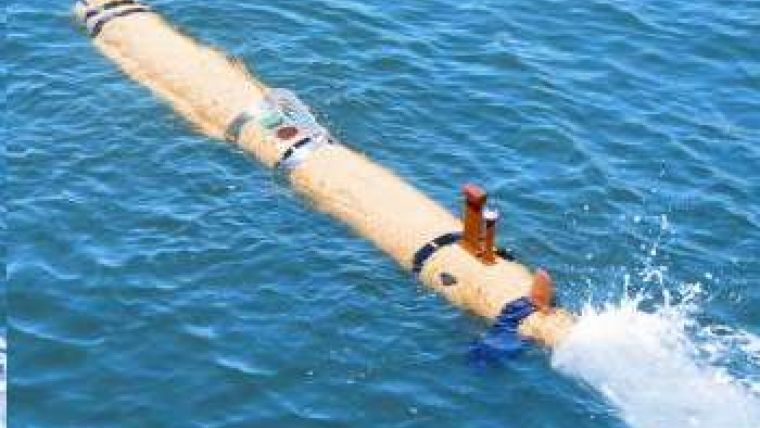REMUS 600 for Horn Point Laboratory
The Horn Point Laboratory at the University of Maryland’s Centre for Environmental Science, USA, has purchased one REMUS 600 system to use as a shared research platform for oceanographic studies of coastal and near-coastal environments. The Lab’s REMUS 600 AUV will include forward and aft hovering modules, which allows the AUV to hold position in a single location above the sea floor, a second on-board payload computer which permits users to implement autonomy algorithms they develop and a nitrate sensor enabling real-time measurements of a critical element in oceanographic research.
It navigates underwater by means of an inertial navigation system coupled to an acoustic device that can be programmed with an initial set of waypoints and travel speeds. Once it finds its target, it can autonomously adapt its measurement protocol via a second computer that constantly monitors the data stream, including salinity, temperature, oxygen, nitrate, and fluorescence (an indicator of the presence of phytoplankton). Missions can be redirected via satellite communication when the vehicle is at the surface, or with an acoustically relayed message via a surface buoy.
Planned projects include studies of frontal dynamics at the continental shelf-slope break, sediment trapping mechanics in the Hudson River, autonomous hypoxia mapping in the Chesapeake Bay, and acoustic imaging studies of zooplankton.
The Horn Point Laboratory plans to make the REMUS 600 system available for charter to other researchers in the marine sciences industry. While under charter, Horn Point’s AUV technician will serve as the AUV’s “skipper”, enabling groups with limited experience to safely utilise the AUV to its maximum potential.














